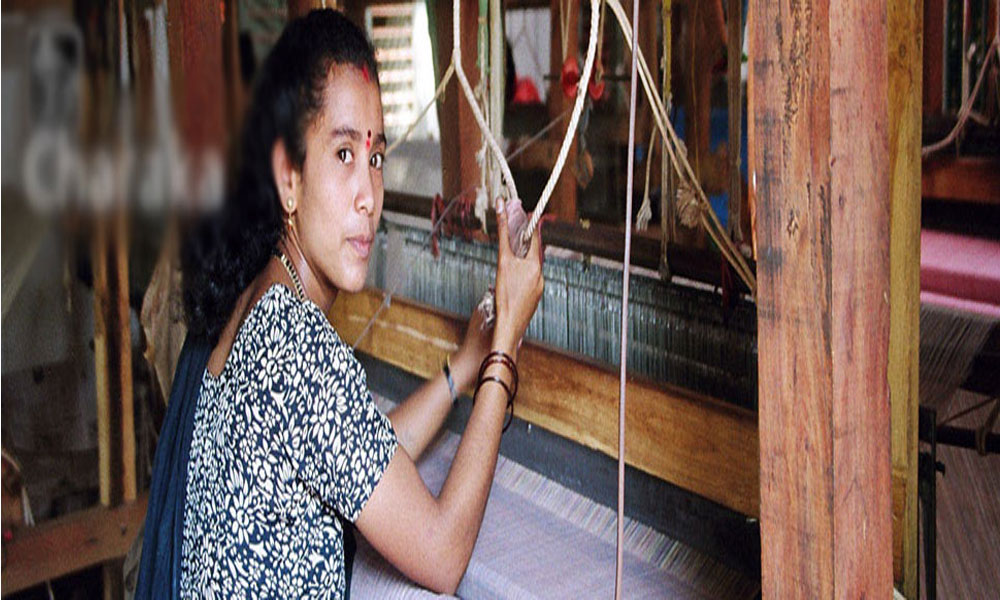Charaka has been instrumental in providing job opportunities for the poor.
A women’s co-operative society named Charaka was founded by a major Indian theatre director and playwright from Karnataka. The society follows the thoughts of the founder of the nation, Mahatma Gandhi and produces naturally dyed cotton handloom garments in a composite handloom unit.
They even produce readymade garments which are sold in cities like Bengaluru under the brand name DESI.
For Mahatma Gandhi, the Charaka was more than just equipment. It represented Swadeshi, self-sufficiency, and independence. Since the wheel is integral to cotton growers, weavers etc, it symbolized dignity of labor, equality, and unity.
Charaka mainly focuses on on-cost effective products. In an effort to provide job opportunities to people from the rural parts of the country, Charaka has decentralized its process. People get trained in society itself. All the weavers, tailors or dyers do not have to travel much to maintain a livelihood.
Charaka presently has two tailoring units in Sagara and one tailoring unit each in Genasinakuni and many other villages of Karnataka. They follow Mahatma Gandhi’s thoughts of tailoring clothes through simple methods and the use of the charaka wheel, which is why the society is called ‘Charaka’.
The society has received widespread recognition for its work. In fact, their growth rate is increasing by 25 percent every year.
As the Secretary of Charaka, Ramesh notes, “We are unique in our methods as we used naturally dyed products. We produce around 30,000 meters of fabric every month which includes sarees and other forms of clothing materials or attires.”
He added,” We are growing at a rapid rate and our main focus is to provide employment benefits to people who belong to rural India. We also wish to see great growth for the handloom industry. Providing jobs for women is also one of our objectives. Hence, our organization is a cooperative society for women.
Ranjan Mondal, a handloom worker said, “Apart from getting support from the government, we also do hands-on work. Charaka gives us a plethora of job opportunities.”
Sohula Sarkar, an artisan mentioned, “I am a woman who works with her hands to sustain herself. Having such opportunities is beneficial to us.”
Mehula Das, another woman who is a handloom worker said, “I pray more such job opportunities are created for poor people like us.”





The khadi fabric products ahs always a demand for. WIth all other fabric types the comfort is not the same for all other than khadi fabrics. The naturally handwoven fabrics give better comfort to others.